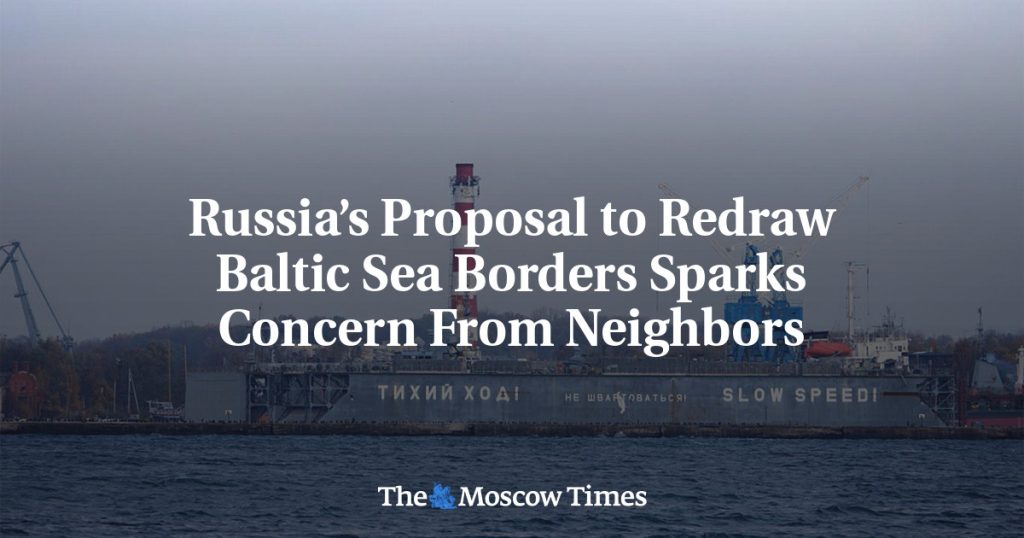A proposal by the Russian Defense Ministry to redraw Russia’s maritime borders in the Baltic Sea has raised concerns among neighboring countries in the region. The proposal, which has since been removed from the government’s website, suggests changes to the borders around Kaliningrad and the Gulf of Finland to “correspond to the modern geographical situation.” While the Kremlin claims the proposal is not politically motivated, experts believe it could be used to pressure Russia’s western neighbors, all of whom are EU and NATO members.
The proposed changes have been met with condemnation from neighboring countries, with Lithuania and Finland stating that this move is an escalation against NATO and the EU. Sweden has raised concerns that Russia might be attempting to gain control over the Baltic Sea. The lack of concrete information in the Defense Ministry’s draft resolution has left the potential impact of any revisions unclear. If approved, the changes could create a gray zone on the borders, leading to tensions and potential conflicts between Russia and neighboring countries.
Despite the proposed changes, Russian state media has reported that Moscow has no intentions to revise its territorial boundaries in the Baltic Sea. However, the lack of clarity surrounding the potential revisions raises concerns about the implications for commercial vessels and the military in the region. This ambiguity creates additional pressure on governments, military forces, and commercial entities in neighboring countries, as they navigate the uncertainty surrounding Russia’s intentions.
The situation has sparked fears of destabilization and insecurity in the Baltic Sea region, with experts highlighting the potential for disputes and conflicts to arise if the proposed changes are implemented. The uncertainty surrounding the draft resolution underscores the need for clear communication and adherence to international rules and regulations in addressing border disputes. The concerns raised by Russia’s neighbors reflect a broader trend of uncertain and shifting geopolitical dynamics in the region, as countries navigate complex relationships with Russia while maintaining ties to EU and NATO alliances.
In conclusion, the Russian Defense Ministry’s proposal to redraw maritime borders in the Baltic Sea has sparked a diplomatic backlash from neighboring countries, raising concerns about potential destabilization and insecurity in the region. The lack of clarity and concrete information surrounding the proposed changes has created uncertainty and ambiguity, leading to fears of heightened tensions and conflicts. As the situation unfolds, it is crucial for all parties involved to engage in transparent communication and adhere to international norms in addressing border disputes and security concerns in the Baltic Sea region.


